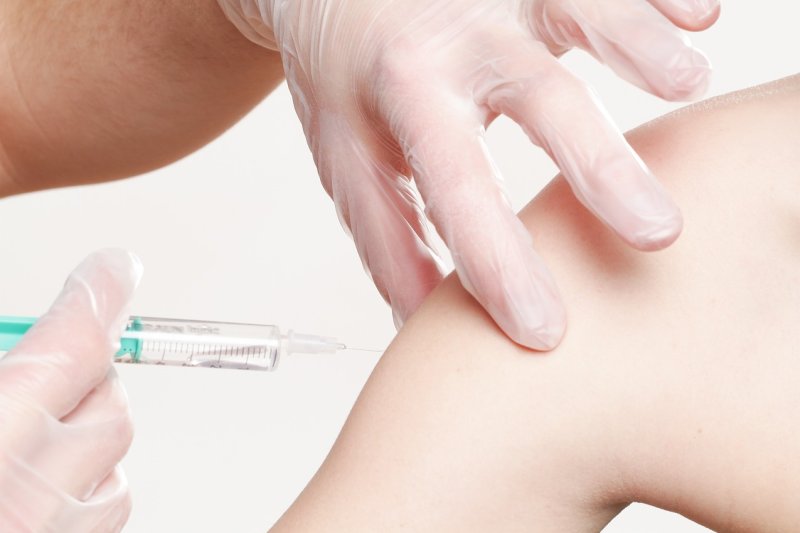Analysis published in JAMA Pediatrics Monday suggests states respond to outbreaks of vaccine-preventable diseases like measles with legislation -- often to widen vaccine exemptions. File Photo by whitesession/Pixabay
Nov. 18 (UPI) -- When it comes to vaccine-preventable diseases like measles and mumps, outbreaks lead to political action -- often to widen vaccine exemptions, according to an analysis published Monday in the journal JAMA Pediatrics.
In reviewing trends in vaccine-preventable diseases reported to the U.S. Centers for Disease Control and Prevention's National Notifiable Diseases Surveillance System between 2010 and 2016, researchers at Drexel University noticed a trend. Increases in confirmed cases of pertussis, measles, mumps, meningitis and hepatitis A -- as well as other conditions for which a prophylactic shot is available -- seemed to result in more legislation limiting or expanding exemptions for the vaccine.
Over the seven-year period assessed by the authors, 175 exemption-related bills were proposed at state legislatures across the country, usually in in direct response to reported outbreaks. Of these, slightly more than half -- 53 percent -- actually expanded exemption rights. The remainder -- 47 percent -- restricted them.
"Law has a real impact on the public's health, and thus lawmakers wield great power to promote health," study co-author Neal D. Goldstein, assistant research professor of epidemiology at Drexel, told UPI.
However, "policies need to be based on science, not opinion," he added. "We examined the content of some of the proposed bills, and saw dubious language linking vaccination to health outcomes" -- like autism in children -- "that have been repeatedly debunked."
Most states and many cities have laws requiring children to be vaccinated against infectious diseases like measles and mumps, and in some cases influenza. However, many also have procedures in place to allow parents and families to apply for exemptions to vaccination requirements, either for medical reasons or for personal and/or religious beliefs.
Among jurisdictions that proposed legislation limiting exemptions, the researchers noted that the number of bills proposed increased 54 percent as incidence of vaccine-preventable diseases increased. That said, "even if legislation is passed, it is not a panacea," Goldstein said. "By the time legislators act to restrict immunization exemptions, it is often too late."
Many of the bills as written yield unintended consequences. States like Vermont that have banned "personal-belief" exemptions to mandated pediatric vaccines have seen an uptick in "religious" exemption applications. Goldstein said California laws regarding childhood vaccinations "have been criticized for allowing children to remain unvaccinated despite the policy's intent of removing all non-medical exemptions. Parents are opting to home-school their children or seek fringe medical practitioners" to circumvent "the intention of the law."
Based on the findings of their analysis, Goldstein and his colleagues advise lawmakers to work closely with public health authorities to promote pro-vaccine programs that are quicker and easier to implement than legislation.
"This could be as simple as a media campaign saying that a particular elected official is pro-vaccine and has fully vaccinated all of their children per the CDC schedule," Goldstein said "The public needs to hear more of the pro-vaccine narrative. There certainly is increasing awareness among the public about vaccination and its importance. Combined with appropriate counseling from healthcare professionals, I believe this increased public awareness can move those who are truly on the fence about vaccination to vaccinate themselves or their children, especially in light of the measles outbreaks."















